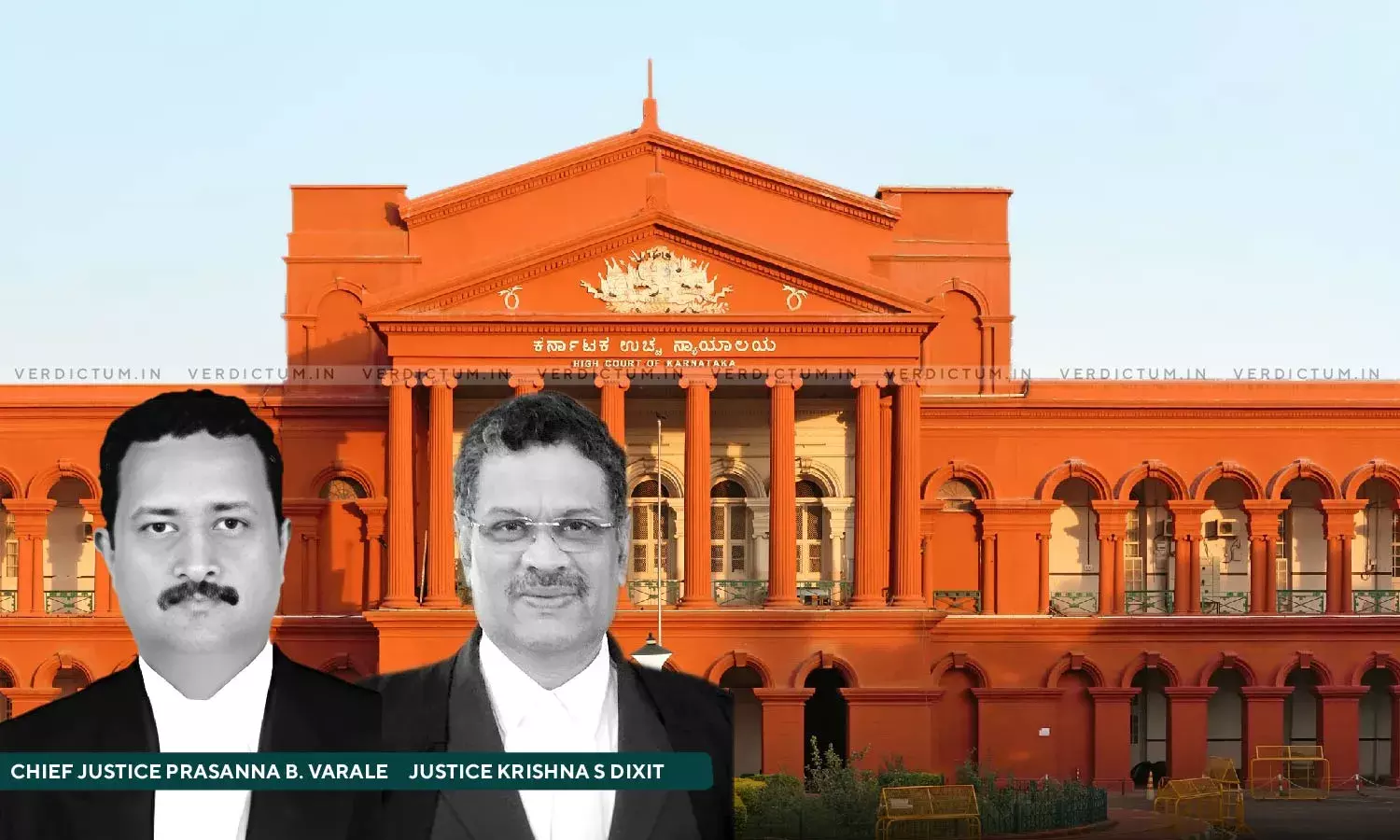'Buddha, Basaveshwara & Ambedkar Are Held As Divine Incarnates': Karnataka HC Dismisses PIL Challenging Oath Taken By MLAs

The Karnataka High Court dismissed the Public Interest Litigation (PIL) that challenged the oath taken by the Members of Legislative Assembly (MLAs) under the names like Buddha, Basaveshwara, and B.R. Ambedkar, saying that such names are held as divine incarnates.
A person named Bhimappa Gundappa Gadad had filed the writ petition claiming to be a public-spirited citizen.
A Division Bench of Chief Justice Prasanna B. Varale and Justice Krishna S. Dixit said, “At times, tall figures like Bhagawan Buddha (563 BCE - 483 BCE) Jagajyothi Basaveshwara (1131-1196), Dr.B.R.Ambedkar (1891- 1956), etc., are held as daivaansha-sambhootaas i.e., divine incarnates which the English word ‘God’ employed in the constitutional formats in Third Schedule, does nearly denote the same. It is said in Kannada ‘devanobba, naama halavu’ nearly meaning that: God is one, though he is called by multiple names. This is in line with what Brihadaaranyaka Upanishad states: “ekam sat vipra bahudha vadanti” which literally means that, truth is one and the wise call him with various nomenclatures. It is significant to note that, the format permits God neutral oath taking.”
Advocate Amruthesh N P appeared for the petitioner while AGA Niloufer Akbar appeared for the respondents.
In this case, the thrust of submission of the counsel for the petitioner was as to the non-compliance of the requirement of the format of oath taking by the respondents. He argued that the respondents, some of whom took oath as Ministers, one of them took oath as the Speaker of the Legislative Assembly and others took oath as the Members of Legislative Assembly, committed the breach of constitutional imperative enacted in Article 188 read with Schedule III of the Constitution of India, and therefore, all should be disqualified. He also submitted that they should be asked ‘to pay penalty fine as prescribed under Article 193 of the Constitution of India, for each day of attending of the office/assembly.
The High Court in view of the above submissions observed, “Having heard the learned counsel for the petitioner and the learned Additional Government Advocate appearing for respondent No.1 and having perused the papers, we decline indulgence in the matter inasmuch as the oath has been taken in substantial compliance of the format.”
The Court noted that it is not uncommon in the Indian society that the people and their elected representatives do show due deference to the sages, social reformers, and tall figures who have contributed for the upliftment of society, more particularly, of downtrodden sections.
“It is also significant to note that oath can be taken in the name of God or by solemn affirmation without taking any name of God. This becomes evident by a sheer look at all the formats enlisted in the Third Schedule to the Constitution of India which employs the expression “swear in the name of God” and alternatively other expression “solemnly affirm”. There have been instances wherein the oath is taken by uttering both the expressions, although going by logic, they are mutually exclusive. However that does not pollute the sanctity attached to the oath”, it further noted.
The Court added that one has to see the substance of prescription and not just the format and this is not to subsidize the sanctity attached to the forms, especially those which the Constitution itself prescribes. It said that the civilized jurisdictions have moved from form to substance, even then, in technical matters like this, forms have their own value & sanctity and such form is prescribed keeping the same in mind.
“Aristotle discusses this aspect of the matter in his Metaphysics, wherein he argues that form is what unifies some matter into a single object, the compound of the two: he appeals to it in his De Anima, by treating soul and body as a special case of form and matter. It is not impertienent to state here that Article 210 provides for taking oath in mother tongue or in any one of the 22 languages enlisted in Schedule VIII to the Constitution. Despite vociferous submissions of the learned counsel appearing for the petitioner, we are not convinced that the oath subscribed by the private respondents does not comply with the requirement of the prescribed formats”, held the Court.
It concluded that the failure to subscribe to the oath in substance would give scope for avoidable litigations of the kind and more is not necessary to specify.
Accordingly, the High Court dismissed the petition.
Cause Title- Bhimappa Gundappa Gadad v. Government of Karnataka & Ors. (Neutral Citation: 2023:KHC:45676-DB)


